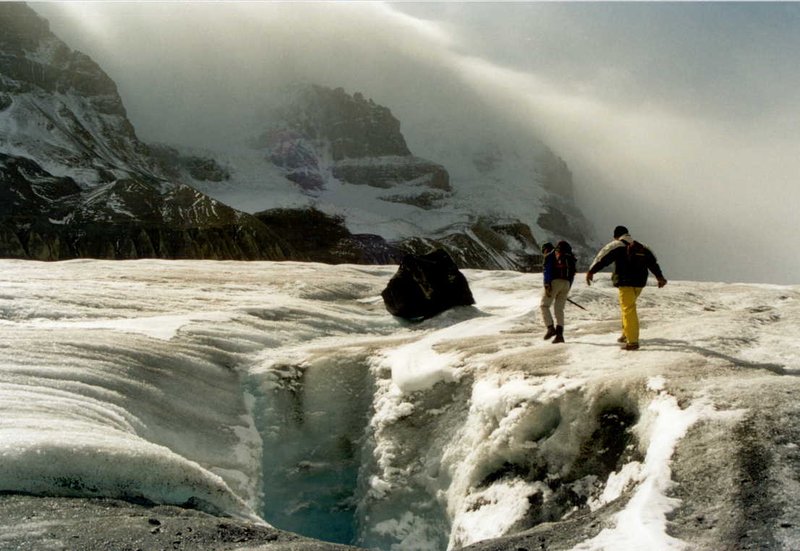Today, we are seeing evidence of acidification of the World’s oceans as atmospheric CO2 rises. Higher concentrations of CO2 in seawater promotes algal productivity and reduces the ability of marine organisms to precipitate calcium carbonate shells. In the long term, this could destroy coral reefs and drastically reduce ecological diversity. We can understand the impact of these changes from past systems, such as Jurassic and Cretaceous carbonate platforms. At his time, high global concentrations of CO2 led to periods of ocean acidification, leading to extinction and adaptation of organisms, recorded by distinct geochemical signatures in the rock record. Studying these events in geological time provides an early warning system to the impact of anthropogenic climate change on Earth’s ecosystems in the future.

Athabasca Glacier, Alberta, Canada, which has retreated by >1 km in the last 100 years